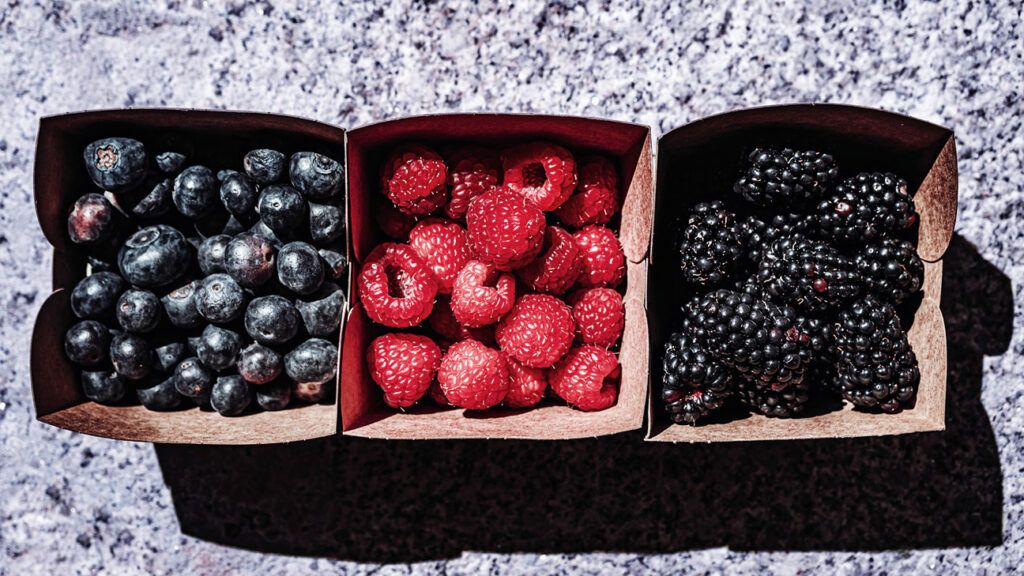Eating More Berries Daily May Promote Healthy Aging, New Research Suggests

Discover how consuming berries and flavonoid-rich foods may promote healthy aging, reduce frailty, and support mental health in older adults according to recent research.
Eating More Berries Daily May Promote Healthy Aging, New Research Suggests

A recent study highlights the potential benefits of consuming flavonoid-rich foods like berries for healthy aging.
Key Takeaways
- As global populations age, maintaining health and independence becomes vital.
- Diet, especially intake of flavonoid-rich foods, plays a crucial role in healthy aging.
- Higher consumption of berries and other flavonoids may reduce risks of frailty, poor mental health, and physical decline.
The Growing Older Population
People are living longer than ever. The World Health Organization projects the number of people over 60 will rise from 1 billion in 2020 to 2.1 billion by 2050. The number of centenarians—those aged 100 or more—is also expected to reach nearly 4 million. Ensuring quality of life during these extended years is a growing research focus.
Natural Dietary Strategies for Aging Gracefully
Nicola Bondonno, PhD, a researcher at the Danish Cancer Institute, emphasizes that diet is a low-cost, accessible way to support healthy aging. Her recent study in The American Journal of Clinical Nutrition found that diets rich in flavonoids—plant compounds found in many fruits, vegetables, and beverages—may help prevent issues like frailty and mental decline.
What Are Flavonoids?
Flavonoids give many plants their vibrant colors and are abundant in foods such as:
- Berries (blueberries, raspberries)
- Citrus fruits (oranges, grapefruit)
- Dark chocolate
- Peaches and bananas
- Green and black tea
- Leafy greens (kale, spinach)
- Red wine
- Vegetables like peas, onions, and tomatoes
They possess anti-inflammatory and antioxidant properties that help protect cells from aging-related damage, support cardiovascular health, and preserve brain and muscle functions.
Flavonoid Benefits for Older Women
Analyzing health data from over 62,000 women and 23,000 men over 60, the study revealed:
- Women with the highest flavonoid intake had a 15% lower risk of frailty.
- These women also had a 12% reduced risk of poor mental health.
- Men benefited from a lower mental health risk but did not show reductions in frailty.
Implications and Future Directions
The results suggest that increasing flavonoid-rich foods could help older adults stay healthy and independent longer. Experts highlight dietary modifications as a proactive approach to aging, emphasizing the importance of diverse, plant-based diets.
How to Add More Flavonoids to Your Diet
Dietitian Monique Richard recommends incorporating flavonoid-rich foods such as berries in breakfast, salads with kale and apples for lunch, and fatty fish with strawberries and vegetables for dinner. Prioritizing variety ensures better absorption of these beneficial compounds.
Conclusion
Supporting healthy aging through diet, particularly by consuming flavonoid-rich foods like berries, is a promising strategy to improve quality of life amid an aging population. Continued research aims to clarify differences in responses between men and women and refine dietary recommendations.
For more insights on healthy aging, consult with healthcare experts and consider making gradual dietary changes to include more nutrient-dense, flavonoid-rich foods.
Stay Updated with Mia's Feed
Get the latest health & wellness insights delivered straight to your inbox.
Related Articles
The 'Mind' Diet Promotes Cognitive Health: Essential Foods for Brain Longevity
Discover how the 'Mind' diet promotes brain health by emphasizing nutrient-rich foods like leafy greens, berries, and healthy fats. Learn practical tips to boost your cognitive longevity today.
Study Shows Salt Warning Labels on Menus Influence Consumer Choices and Reduce Salt Intake
Salt warning labels on restaurant menus significantly influence consumer choices by reducing salt intake and increasing awareness, supporting public health efforts to lower diet-related health risks.
Unhealthy Plant-Based Diets May Significantly Increase Heart Disease Risk
Not all plant-based diets are beneficial for heart health. Discover how processed plant foods can increase cardiovascular risks and learn tips for healthier choices.
Dietary Interventions as Potential Therapy for Brain Cancer
New research suggests that specific dietary changes could slow or halt the progression of aggressive brain tumors like glioblastoma by targeting cancer cell metabolism. Studies in mice indicate promising possibilities for nutritional therapies to complement existing treatments.



